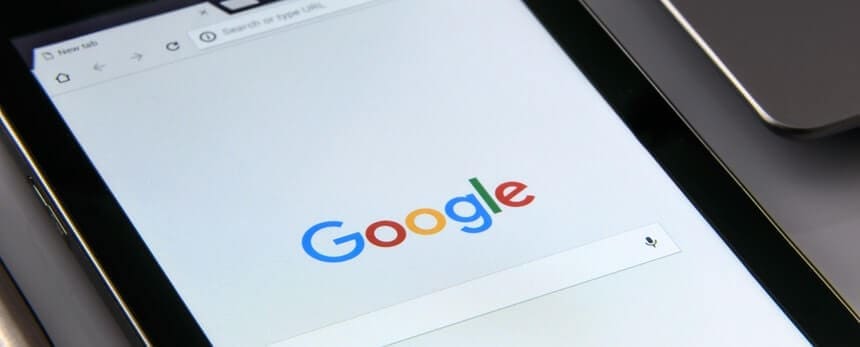
Boost your rankings and attract more customers through our SEO expertise.

[iframe src=”https://www.youtube.com/embed/RtFlAicK3xw?rel=0″ width=”560″ height=”315″]
Over the past few days, a new documentary about the history of SEO has been released, produced by digital marketing firm Ignite Visibility. ‘SEO:The Movie’ has already amassed more than 81,000 views on YouTube, and as a veteran of the early days of search marketing, it’s easy to see why.
Time moves incredibly fast in the world of digital marketing, and it’s easy to forget how far we’ve come over the past 20 years. Through the insights and stories of industry pioneers Danny Sullivan, Rand Fishkin, Jill Whalen, Brett Tabke, Rae Hoffman and Barry Schwartz, and the narration of John Lincoln, CEO of Ignite Visibility, the video is a nod to the individuals who have helped to build SEO into the huge industry that it is today, as well as the tools and services that have contributed to its innovation.
Although very US-centric in its approach, the video shares some wonderful memories of the early days of search, from around the mid-90s onwards. “The search engines, who were making incredible amounts of money, had this philosophy of breaking the rules, moving fast, and there was huge opportunity especially for affiliate players and SEOs, and there was this sense of unbridled opportunity,” remembers Rand Fishkin, founder of Moz.
Interviewees within the documentary recall how epic the industry parties were in particular. For example, Yahoo threw a party, for which it rented out the Hugh Heffner suite. “The rental of the suite for the evening was $200,000. The party in particular epitomises the era,” shares Fishkin.
Danny Sullivan, who in many ways was the man behind the search industry, says of the early days: “I just really wanted to get some decent answers to questions about how search engines worked.” “Google hadn’t yet become a public company, people could see that it was rising, and it was still really raw and fresh.”
Crucially, the video is a reminder that the knowledge we have of the science and algorithms behind SEO, took quite some time to acquire. It’s thanks to a few, smart and committed individuals who decided to take on the search giants and figure out what was going on behind the scenes, that this intelligence was acquired. Rand Fishkin says: “the search engines themselves were all incredibly secretive about how their algorithms worked. I think they felt it was a proprietary trade secret, to help them maintain a competitive advantage against one another. As a practitioner trying to keep up with the search engines and understand what they were doing, while being able to distinguish real information about SEO from fake information, was incredibly challenging.”
Consequently, in the early days, while the search engines were keeping knowledge to themselves, there was much misunderstanding around SEO. Within the video, Brett Tabke, founder of Webmasterworld.com, explains that “no one knew how to build web pages, let alone how to get traffic or how to get listed. We’d have product threads that would rank higher for a product name, than the product’s homepage, because we had such a high page rank. We had a PR 9 for several years. [Brands] would attempt to sue us…over using their keywords within a post, or they would complain to the search engines themselves.”
The video also talks about the ongoing antagonism that has existed between the SEOs (who have wanted to play the Google game) and the affiliates (who have never cared about Google rules). “The affiliates were the original black hats, and the SEOs were the original white hats,” says Tabke.
A notable moment within the video (and SEO history) includes Danny Sullivan’s mention of the ‘Google Dance’. He explains that “when new algorithms or new data were pushed out from the Google search engine, results would dance around for a few days. People would hold their breath to see what would happen.”
Subscribe to our monthly newsletter.
The launch of the Google toolbar was another huge chapter in SEO, because it came with an important feature called the Page Rank metre. “Suddenly people could discover how important Google deemed their websites or pages, based on the links pointing at them,” says Sullivan. “Everyone had a Page Rank score, and you could buy or sell links based on these PR scores. It is a woe that has continued to plague Google and the SEO space to this day. It’s involved law suits over Google taking PR away from people.”
The Florida update in 2003 was one of the most major updates which influencers within the video recall. Google apparently never confirmed it, but it caused search rankings to freefall overnight, and many businesses folded as a direct result. “[Google] really threw an elbow and let us know that this was their algorithm, their machine, their business, that they were going to protect. They clearly went out and directly after search engine optimisers,” says Brett Tabke.
The Penguin update that happened in 2012 also receives a mention, for the impact that it had on websites and their associated businesses. Pushfire chief executive Rae Hoffman, explains: “Google launched something that was extremely punitive and extremely devastating, that threw a lot of baby out with the bathwater. And then it chose not to update it again for almost two years.”
What’s also worth watching is the commentary that the pioneers featured offer on the future of SEO, and their views are widely dispersed. I’d be inclined to agree with Lincoln who says that in many ways, the short term future of SEO rests on the evolution of smart assistants and voice search, which could have a dramatic impact on search volume.
And as Danny Sullivan concludes, “it’s never too late for people to start doing SEO”.
The full 40-minute video is well worth watching, as a trip down memory lane for those who have worked in search for many years, and also as a brief plotted history for those just entering the fray.
Subscribe to our monthly newsletter.